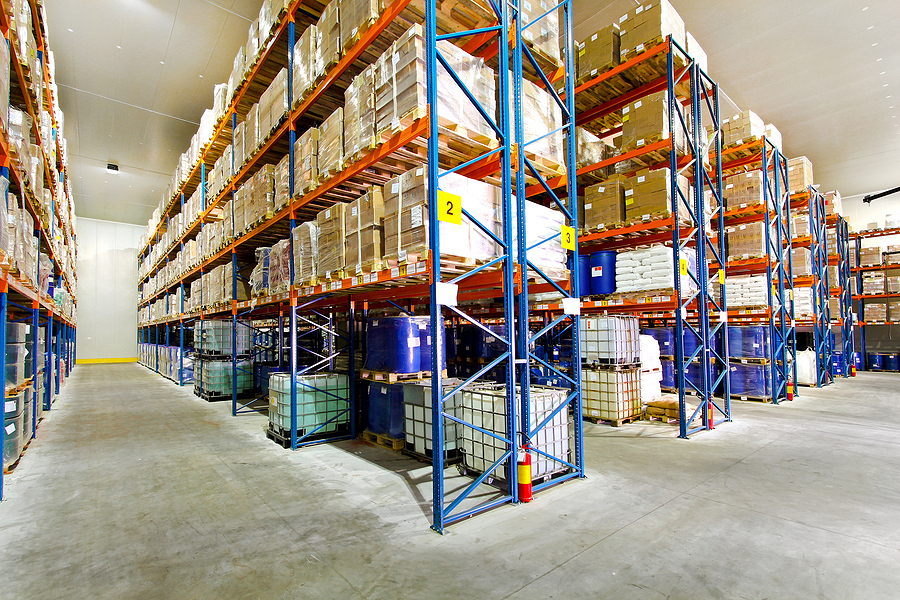Warehouse fires are distressingly frequent. It doesn’t matter if your building hosts a manufacturing plant or handles shipping and storage, the threat of fire lingers.
Here, we are going to disclose what (mostly) causes the warehouse first, and how to deal with it!
What Causes Fires in a Warehouse & Industrial Buildings
To prevent fires, we need to grasp the origin. Let’s explore common fire culprits in warehouses—dust accumulation and electrical issues, for instance. We’ll also delve into industry-specific risks, like explosive sugar in food production facilities.
Common Warehouse Fire Culprits:
- Accumulation of combustible dust
- Electrical glitches
- Human blunders
- Smoking
- The kitchen or breakroom
- Arson
Now, manufacturing environments pose additional challenges. Certain products and processes heighten fire risks. Therefore, fire prevention takes on added importance due to the daily usage of specific materials and machinery.
Common Fire Starters in Manufacturing Plants:
- Explosive and flammable dust build-up
- Machinery breakdown
- Overburdened electrical equipment
- Flammable liquids
- Usage of flame-generating tools (like torches or welding gear)
This list is by no means exhaustive, but it illustrates the wide array of factors that can fuel a fire in industrial settings. Now, let’s see what you can do about it!
How To Prevent a Fire In Your Industrial Building
Naturally, obvious measures like fire extinguishers are crucial, but let’s consider more expansive fire prevention tactics. Our focus? Comprehensive, large-scale strategies that leave no stone unturned.
#1 Maintain Cleanliness for Fire Safety
A spotless warehouse or plant guarantees improved safety. These cleaner facilities are less prone to fire risks, creating a secure workspace for everyone involved. With today’s technology and increasing awareness of workplace hazards, there’s no excuse not to ensure that our factories and warehouses remain clean – after all, safety should be top priority!
#2 Don’t Overlook HVAC Cleaning & Upkeep
Owners often neglect HVAC systems. However, explosive dust can accumulate inside, atop, and throughout the system. Hence, it’s critical to inspect your HVAC using video surveillance, clean the ductwork regularly, and maintain the overall system.
#3 Keep Electrical Systems in Check
Like HVAC systems, electrical systems can harbor explosive dust or flammable liquids. A single spark could trigger a fire. Regular inspections—annual, quarterly, or even monthly—can prevent substantial financial losses from fires.
#4 Ensure Regular Machinery Maintenance & Cleaning
The machines you use will depend on your industry, but most have numerous moving parts. With electrical components and ever-rubbing gears, there’s always a risk of a spark. Regular cleaning will prevent material build-up, which could otherwise ignite and start a fire in your warehouse.
These proactive steps go beyond the minimum requirements and provide an added layer of protection against fires. Remember, it’s always better to prevent a fire than to react to one.
#5 Storing Flammable Materials Correctly
Flammable material storage requires precision. If your work involves flammable liquids, their safekeeping is crucial. Take, for instance, a propane-powered forklift. Ensure your operators are fully aware – the fuel must be securely sealed. Operator mistakes, swift as they are, can cause wide-reaching damage.
#6 Having Fire Extinguishers Readily Available
Now, onto fire extinguishers. Yes, it’s an expected measure, but bears repeating. The best firefighting tool is prevention, and accessible fire extinguishers are your first line of defense. Your quarterly safety reviews should include checking their expiration dates.
#7 Separate Smoking Area to Prevent Building Fires
Fires sparked by cigarettes are far too common. An isolated smoking area can help prevent such incidents. Safeguard your building, your employees. In this specially designated area, remember to have a fire extinguisher at hand. Make sure it’s free of materials, grass, trash – anything flammable.
#8 Fire Emergency Practice
Your team needs to be ready for a fire emergency. Clear roles, clear expectations. Where are the fire escapes? Where are the fire extinguishers? What steps should they take if a warehouse fire or a combustible explosion occurs? In these nerve-racking moments, communication is key. Unpreparedness leads to heightened damage, and even worse, potential loss of life.
#9 Clearly Marked Exits for a Fire Emergency
Exits during fire emergencies must be well-defined. The quickest exit route should be every employee’s first piece of information. In the face of a fire, this knowledge will prevent a panicked rush for a single exit. Everyone will be able to leave the premises safely.
#9 Sprinkler System Stop Warehouse Fires
Sprinkler systems are crucial in sizable warehouses. These systems can halt a fire, keeping it from spreading. It’s essential to ensure your warehouse’s sprinkler system is current and functional – a proactive measure to avert potential fires.
#10 Follow OSHA & NFPA Fire Safety Guidelines
Abiding by OSHA and NFPA fire safety guidelines is non-negotiable. These regulatory bodies have established rules to shield your business and staff from fire perils. Compliance with these fire safety protocols is obligatory – anything less could be perceived as negligence, leading to penalties, legal suits, or jeopardized insurance coverage.
#11 Building Security to Stop Arson
Arson – it’s an unfortunate possibility, location notwithstanding. Having adequate building security can serve as a deterrent. Whether it’s an aggrieved ex-employee or a habitual arsonist, your commercial property could be targeted.
#12 Perform Regularly Scheduled Fire Safety Inspections
Fire hazards don’t pop up overnight. They emerge from months of disregard, dust accumulation, or inadvertent strain on machinery or circuit breakers. Regularly scheduled fire safety inspections are key to averting such risks.
#13 Ask Your Employees About Fire Hazards
Don’t underestimate your employees’ insights. They are in the workspace daily, making them the first line of detection for potential hazards. However, they may often hesitate to voice their concerns, feeling unqualified or assuming, “it’s not my concern.” Encourage them to step forward, to report any potential fire hazards to HR or supervisors. It’s a team effort to keep your workspace safe from fire threats.
